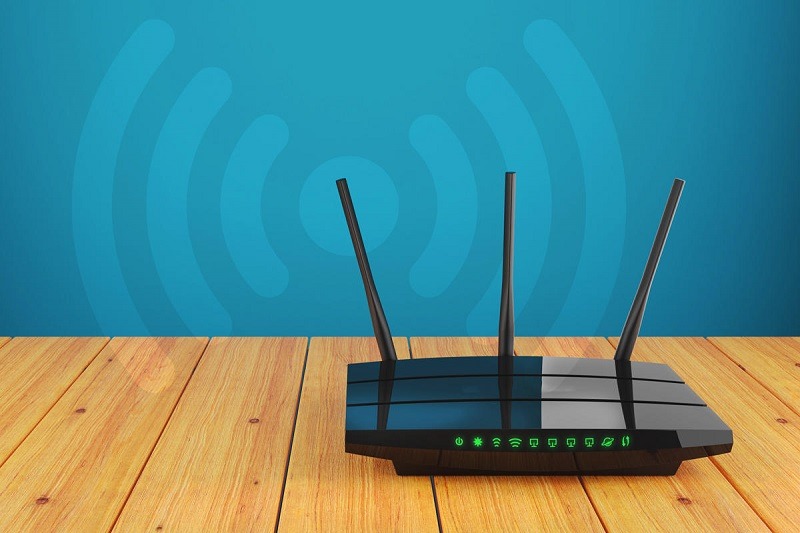Routers—the backbone of modern networking—are not just another piece of technology, but rather the gatekeepers of our digital world. They have come a long way since their humble beginnings as simple modems. Today, routers are advanced networking devices that play a crucial role in connecting and directing traffic across the vast expanse of the internet. From residential homes to bustling offices, routers have become an indispensable part of our daily lives. In this article, we will delve into the captivating world of routers, exploring their evolution, functions, various types, and practical applications. Whether you are a tech enthusiast or simply curious about the underlying mechanisms that keep us connected, join us on this fascinating journey as we unravel the mysteries behind routers and unravel the secrets of seamless network communication.
The Evolution of Routers: From Modems to Advanced Networking Devices
From Dial-up Modems to High-Speed Internet
Remember the days when we had to use dial-up modems to connect to the internet? Those screechy sounds and slow loading times are distant memories now, thanks to the evolution of routers. Routers have played a pivotal role in bringing us from the Stone Age of dial-up to the Information Age of high-speed internet.
The Birth of the Router
So how did routers come into existence? Well, back in the early days of networking, there was a need for devices that could connect multiple computer networks together. That’s when the router was born. Initially, routers were simple devices that allowed data packets to find their way from one network to another.
The Rise of Wireless Routers and Home Networking
As technology advanced and the internet became a household necessity, the need for wireless connectivity emerged. Enter wireless routers, the superhero of home networking! These nifty devices allow us to connect multiple devices to the internet without any messy cables.
The Advent of Advanced Networking Devices
In recent years, routers have evolved beyond just connecting devices to the internet. They now come packed with advanced features that cater to the demands of modern network communication. From gigabit speeds and beamforming technology to parental controls and VPN support, today’s routers have become powerhouses of connectivity.
[amazon bestseller=”Routers” items=”10″]
Understanding the Role of Routers in Network Communication
The Traffic Cops of the Internet
Imagine the internet as a bustling city with millions of cars, and routers as the traffic cops. Routers play a crucial role in directing data packets through the vast network of interconnected devices, ensuring they reach their intended destinations quickly and securely.
Routing and Switching
At the heart of network communication lies the routing and switching functionality of routers. When data packets are sent across different networks, routers use routing protocols to determine the best path for the packets to take. Switching, on the other hand, involves the efficient transfer of data within a single network.
Network Address Translation (NAT)
Ever wondered how all the devices in your home or office can share a single internet connection? That’s where Network Address Translation (NAT) comes into play. Routers use NAT to assign private IP addresses to devices within a local network, allowing them to communicate with the outside world using a single public IP address.
Security and Firewall Protection
Routers also act as the first line of defense against malicious attacks from the internet. They come equipped with built-in firewalls that monitor and filter incoming and outgoing network traffic, protecting your network from unauthorized access and potential threats.
Exploring Different Types of Routers and Their Applications
Home Routers
Home routers are the unsung heroes that keep our internet-connected lives running smoothly. They provide wireless connectivity and allow us to stream movies, connect smart devices, and browse the web, all from the comfort of our homes. With features like dual-band Wi-Fi, parental controls, and guest networks, home routers offer a wide range of functionalities to meet our everyday needs.
Enterprise Routers
When it comes to large-scale networks, enterprise routers take center stage. These heavy-duty machines are designed to handle the demands of businesses and organizations. With features like high-performance routing, advanced security protocols, and support for virtual private networks (VPNs), enterprise routers ensure seamless connectivity and data transfer for a large number of users.
Wireless Mesh Routers
Wireless mesh routers are the ultimate solution for eliminating Wi-Fi dead zones in large homes or office spaces. Instead of relying on a single router, these systems use multiple nodes placed strategically throughout your space to create a seamless mesh network. This ensures uniform coverage and eliminates frustrating Wi-Fi dropouts.
VPN Routers
If you’re concerned about online privacy and security, VPN routers have got you covered. These specialized routers come with built-in support for virtual private networks, allowing you to encrypt your internet traffic and browse the web anonymously. VPN routers provide an added layer of protection, especially when accessing the internet on public Wi-Fi networks.
Choosing the Right Router for Your Home or Office Network
Assessing Your Needs
Before diving into the sea of routers available in the market, it’s important to assess your specific needs. Consider factors such as the size of your space, the number of devices that will be connected, and the desired level of performance and security.
Wi-Fi Standards and Speeds
Keep an eye out for the latest Wi-Fi standards when choosing a router. The newer standards, such as Wi-Fi 6, offer faster speeds, better range, and improved performance compared to older versions. Determine the maximum bandwidth you require to support your online activities, whether it’s streaming 4K videos or indulging in intense gaming sessions.
Security Features
Ensure that the router you choose has robust security features to protect your network from potential threats. Look for routers with built-in firewalls, support for WPA3 encryption, and options for creating guest networks. Additionally, if you plan on using a VPN, make sure the router you select is VPN-compatible.
Additional Features and Customizability
Consider any additional features that might enhance your networking experience. This could include parental controls to manage internet usage, USB ports for connecting external storage devices, or support for smart home integration. Customizability options, such as the ability to install third-party firmware, can also be a deciding factor for tech-savvy users.
The Evolution of Routers: From Modems to Advanced Networking Devices
Routers have come a long way since their humble beginnings as simple modems. Back in the early days of the internet, modems were the main way for households to connect to the World Wide Web. These devices allowed users to establish a dial-up connection, enabling them to access the internet at snail-like speeds. However, as technology progressed, so did routers.
The Birth of the Router: Connecting Networks
In the early 1980s, computer scientists developed what we now recognize as the first routers. These devices were designed to connect local area networks (LANs) and enable the exchange of data between different networks. Unlike modems, routers didn’t just rely on a single connection to establish network communication. Instead, they could analyze and determine the most efficient path for data packets to travel, ensuring faster and more reliable connections.
From Modem to Gateway: Expanding Connectivity
As the internet became more popular, routers evolved further to include built-in modems. These devices, known as gateway routers, allowed users to connect directly to the internet without the need for a separate modem. This innovation streamlined the connection process and made it more convenient for users to access the internet.
A New Era of Advanced Networking Devices
The rapid advancements in technology paved the way for highly sophisticated routers with advanced networking capabilities. Modern routers not only connect to the internet but also provide additional features such as wireless connectivity, firewalls, virtual private networks (VPNs), and more. These routers act as the central hub for home or office networks, allowing multiple devices to connect and communicate seamlessly.
Understanding the Role of Routers in Network Communication
Routers play a critical role in network communication, acting as the traffic managers of the internet. They take data packets from one network and pass them on to their intended destination, ensuring that the information reaches its target efficiently and securely.
The Traffic Directors: Routing Data Packets
Imagine a router as a busy intersection, where data packets are the cars trying to reach their destinations. Just as traffic lights guide cars in different directions, routers use routing protocols to determine the best path for data packets to travel. They analyze factors such as network congestion and network speeds to ensure that data gets to its destination in the fastest and most reliable way possible.
The Gatekeepers: Network Security
Routers also act as gatekeepers for network security. They provide features like firewall protection, which helps prevent unauthorized access to a network. Additionally, routers support features like VPNs, which encrypt data and ensure secure communication between networks. By controlling access and protecting sensitive information, routers act as the guardians of a network’s security.
Exploring Different Types of Routers and Their Applications
Routers come in various shapes and sizes, each designed with specific applications in mind. Let’s dive into some of the different types of routers and how they are commonly used.
Home Routers: Connecting Your Devices
Home routers are the workhorses of residential networks. They provide wireless connectivity, allowing multiple devices like laptops, smartphones, and smart home devices to connect to the internet. Home routers usually come equipped with multiple Ethernet ports, enabling wired connections as well. With these routers, you can create a home network that supports seamless internet browsing, file sharing, and media streaming.
Enterprise Routers: Managing Large Networks
Enterprise routers are built to handle the demands of large-scale networks. These routers are often found in corporate environments, universities, or government institutions. They possess advanced features like Quality of Service (QoS) to prioritize specific network traffic, ensuring critical applications receive sufficient bandwidth. Enterprise routers also offer robust security features to protect sensitive data and regulate access among various departments or subnets.
Wireless Mesh Routers: Extending Coverage
Wireless mesh routers are a relatively new addition to the router market. They are designed to address the challenge of extending Wi-Fi coverage in larger homes or offices. Traditional routers have coverage limitations, and dead zones can occur in areas far away from the router. However, wireless mesh routers consist of multiple access points spread throughout the premises, creating a “mesh” network that provides seamless coverage. This type of router ensures a consistent and reliable Wi-Fi signal, even in the farthest corners of your space.
Choosing the Right Router for Your Home or Office Network
With a wide variety of routers available, choosing the right one for your home or office network can be a daunting task. Consider these factors to make an informed decision.
Internet Speed and Bandwidth Requirements
Check your internet service plan to determine the speed and bandwidth you require. Different routers support different speeds, so look for one that meets or exceeds your needs. For example, if you have a high-speed fiber optic connection, you’ll want a router that can handle those speeds without any bottlenecks.
Home or Office Network Size
Consider the size and layout of your home or office. Larger spaces may require routers with greater coverage capabilities, such as wireless mesh routers. Smaller spaces, on the other hand, may benefit from a single powerful router.
Security Features
Evaluate the security features provided by the router. Look for features like firewall protection, VPN support, and parental controls, depending on your specific security requirements.
Budget
Lastly, factor in your budget. Routers come in various price ranges, so consider what you are willing to spend while also keeping in mind the features you need. Remember, investing in a good router can provide long-term benefits for your network.
Choosing the right router requires careful consideration of your unique needs. By understanding the different types of routers available and evaluating key factors like internet speed requirements, network size, security features, and budget, you can make an informed decision that ensures optimal performance for your home or office network.
Conclusion
As we conclude our journey through the evolution and intricacies of routers, it becomes evident that these powerful networking devices have truly revolutionized the way we communicate. From their humble beginnings as modems to today’s advanced networking devices, routers have become the cornerstone of our internet-driven world. Understanding their role in network communication and the different types available, we can make informed decisions when choosing the right router for our home or office network. It is essential to demystify router specifications and follow a step-by-step guide to set up and configure them effectively. Moreover, implementing best practices for securing routers is crucial in protecting our networks from potential threats. And when faced with common router issues, troubleshooting tips and solutions come in handy. So, embrace the power of routers and navigate the digital landscape with confidence and efficiency.
Frequently Asked Questions
1. What is a router and what does it do?
A router is a device that connects multiple devices to a network and directs traffic between them. It acts as a central hub, allowing your smartphone, computer, gaming console, and other gadgets to communicate with each other and access the internet. Think of it as a traffic cop, making sure data packets reach their correct destinations efficiently.
2. How does a router work?
Routers function by using a combination of hardware and software. They connect to your internet service provider’s network through a modem, receive data packets from various devices, and analyze the destination address in each packet. Using this information, the router determines the best path for the data to reach its destination and then sends it on its way. It does all this in a split second, allowing for seamless internet browsing and data transfer.
3. Can I use any router with my internet service provider?
In most cases, yes. You can use any router with your internet service provider (ISP), but it’s essential to ensure compatibility and optimal performance. ISPs generally provide a list of supported router models or recommend specific ones. It’s a good idea to check with your ISP or consult their website for any restrictions or requirements.
4. What is the difference between a modem and a router?
While both devices are essential for connecting to the internet, modems and routers serve different purposes. A modem connects your home network to your internet service provider, converting the incoming signal from your ISP into a format your devices can understand. On the other hand, a router directs and manages the traffic within your home network, allowing multiple devices to connect and communicate with each other.
5. How often should I update my router’s firmware?
Updating your router’s firmware is crucial for security, bug fixes, and performance improvements. It’s recommended to check for updates every three to six months or follow the guidelines provided by the router manufacturer. Some routers even have an automated update feature, which you can enable to keep your router running smoothly without manual intervention.











